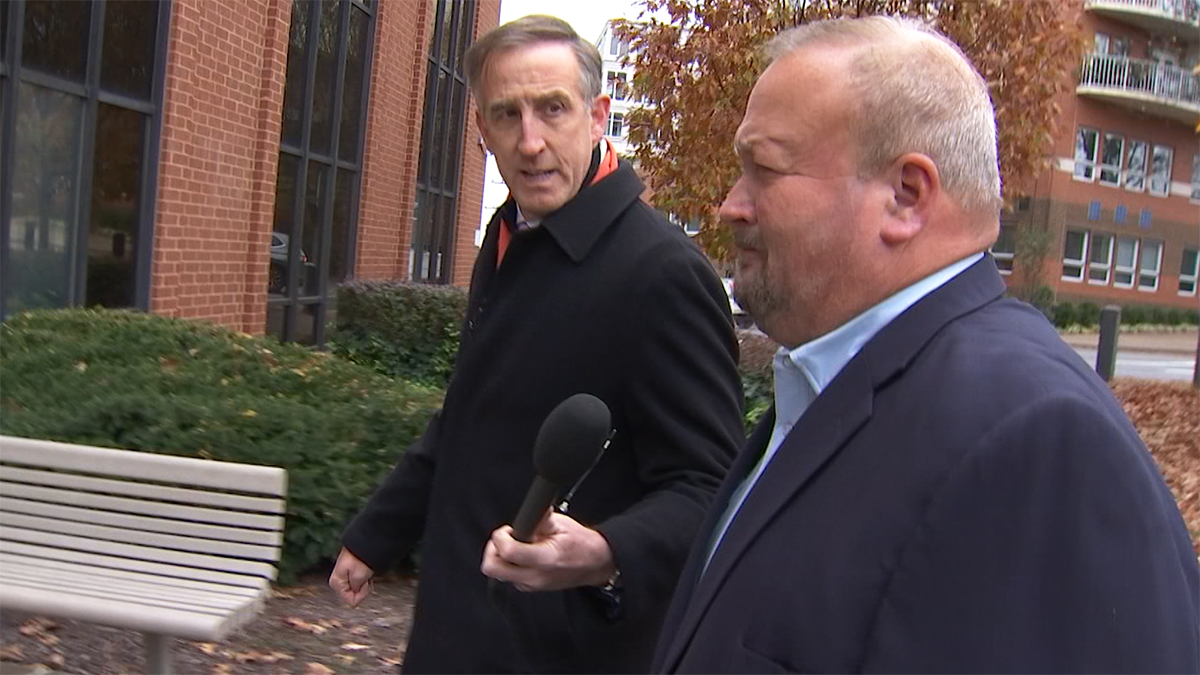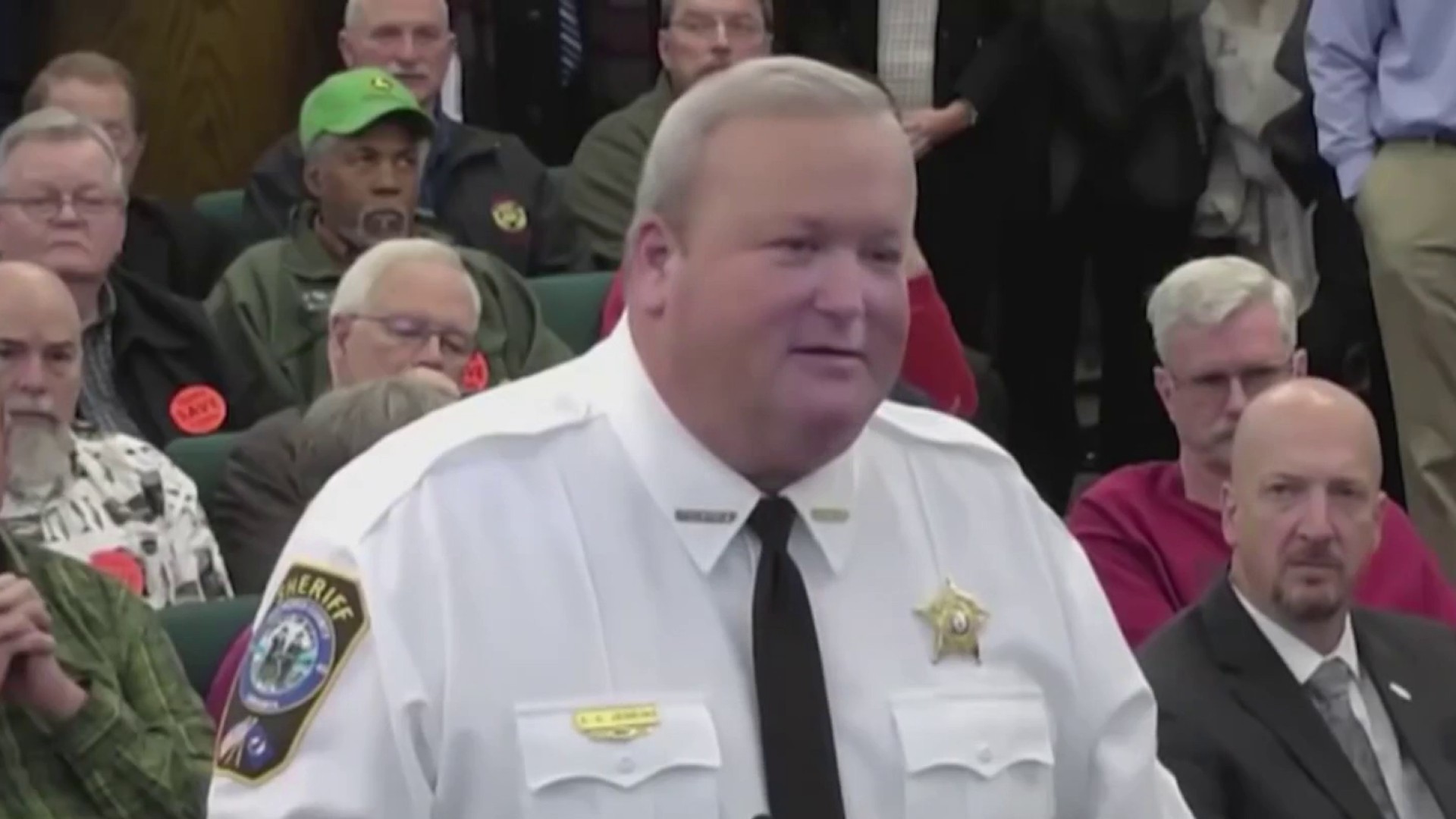A D.C. man who rented out his condo as part of a city program to curb homelessness says he almost ended up homeless himself.
"I was taken from my home, and the D.C. government just totally disregarded that," Robert Butler said.
In 2018, he entered his two-bedroom condo into D.C.'s Rapid Rehousing Program.
"It sounds like a great thing because it was only a year, and, you know, everything go back to normal. I get my apartment back, and it made a little extra cash," he said.
We've got the news you need to know to start your day. Sign up for the First & 4Most morning newsletter — delivered to your inbox daily. Sign up here.
At first, it was great. He met his tenant, a young mother.
"When she came to the apartment to apply, she was like, ‘Mr. Butler, I really need this, you know, for me and my children,’" Butler said.
For all of that year, the program, run by D.C.'s Department of Human Services, paid her rent, just shy of $1,500 a month. At the end of 2018, Butler said he did not want to renew the lease, but the city exercised an option to keep her in the property, anyway, which is allowed in the program.
Investigations
Investigations by the News4 I-Team
"They kept telling me she has a right to request an extension,” said Butler.
Midway through 2019, he said he fell on hard times, medically and financially, and needed to move back into his condo. In November 2019, he let his rental business license lapse, because he didn't want to be a landlord anymore and hoped she'd be moving out.
He said the one consolation was that D.C. government kept paying the rent through January 2020 when it stopped and his troubles really started.
"They was like, ‘Well, she's no longer in the program.’ Like, oh, well. And then she just boldly told me she wasn't going nowhere. I mean, it was crazy, " Butler said.
Of course, that wasn't the only crazy thing happening in February and March of 2020. The whole world was shutting down because of COVID-19.
At that point, he said he was only out about $3,000 in back rent, but he'd been couch surfing among family and friends, and from April to October he had to move to a hotel.
He said in all of those months, the tenant didn't pay a dime, which the city said she would be responsible for if she had been exited from the program.
"I got my own place, I'm spending all this money in a hotel, and she's in my apartment for free," Butler said.
Rachel Pierre of the Department of Human Services wouldn’t answer questions about this specific situation but said the program is designed to give participants time to stabilize their income, so they can pay for themselves.
The News4 I-Team asked her what is supposed to happen if the tenant does not pay rent in the Rapid Rehousing Program.
“Same as if you and I did not pay the rent. Ultimately, our landlords are able to evict us,” Pierre said Pierre. "We don't evict folks. That's not our job."
News4 pointed out that D.C. government halted evictions during COVID-19, and Pierre said that's why the program also stopped exiting participants during that time. The trouble is, Butler’s tenant had already been removed from the program right before the pandemic started.
"They definitely receive notice before the end of the program termination that the rent subsidies will end and they are responsible then for their own rent payments," Pierre said.
Butler said the renter racked up more than $28,000 in missed rent payments in 2020 and 2021. That meant he fell behind about $10,000 on his condo fees and utilities.
"It's had an impact on me, the stress," he said. "It was terrible."
His best hope of getting that money back was a pandemic program called StayDC. It was also administered by DHS and designed for exactly this kind of thing.
"The program has been really successful,” Pierre said. “We have over 34,000 unique families who successfully were able to receive our rental assistance and be able to stay in their home ultimately during the public health emergency."
Butler and his tenant both applied – email correspondence shows their applications were joined together – and he said the money was approved.
"It said it was sent out and that she received it,” he said. “She cashed it for at least $23,488."
But according to him, that didn’t solve his problems.
"She give me $5,000, and then she says, ‘Well, next week I'm gonna have a little more,’" he said.
He said that never happened, even though the tenant is supposed to provide the money to the landlord.
"Yeah, absolutely. They're expected to. In the rare instances when tenants do not pay the landlords, those are fraud cases that we that we send to our investigative office," said Pierre.
Which is exactly where Butler’s case sits now, or so he thinks. An email from a DHS investigator five months ago said she'd sent the report to a supervisor. The agency wouldn't comment to the I-Team on an open case. D.C.'s Office of Inspector General also told the I-Team it had an ongoing investigation.
"Right now, I would just like to be made whole," said Butler.
But instead, he said he’s at the mercy of another arm of D.C. government. His tenant called the Department of Consumer and Regulatory Affairs last fall to report code violations in the condo.
"They gave me almost $6,800 worth of fines," he said, to bring items up to code for a place he didn't want to be renting out. "And, like, she does get more protection from the government with my apartment than they are giving me. And I'm like, this is crazy."
The I-Team tried to get his tenant’s side of the story, but she did not return calls or emails, and attempts to find where she’s living now were unsuccessful because just as baffling as the rest of the situation is how she left – abruptly – in January without a word.
"I still really don't know 100%. What I'm thinking? She's seen that electric bill with a shut off notice,” said Butler.
He's now in the process of moving back into his place.
"I got a little uphill battle, but at least I'm better than where I was, " he said.
Reported by Jodie Fleischer, produced by Rick Yarborough, and shot and edited by Steve Jones.



